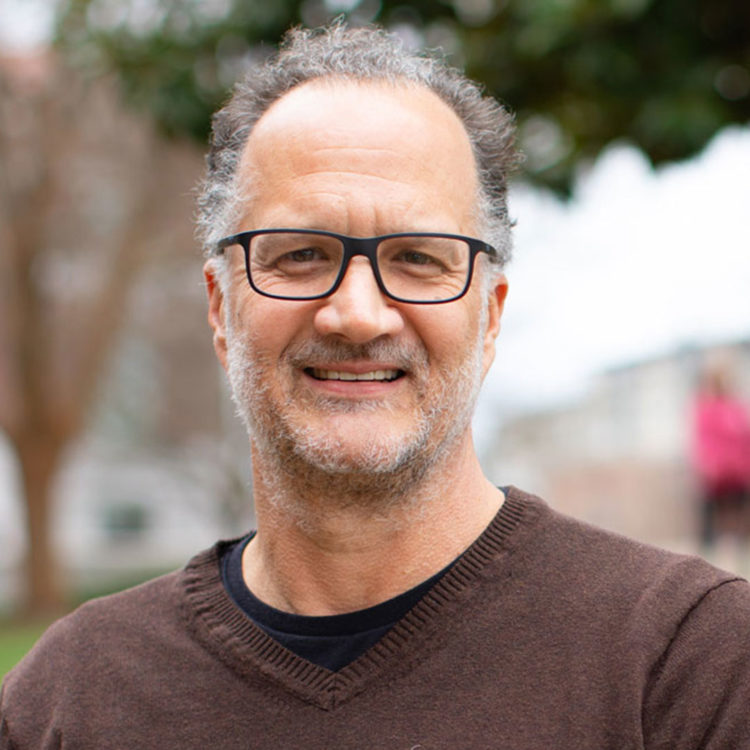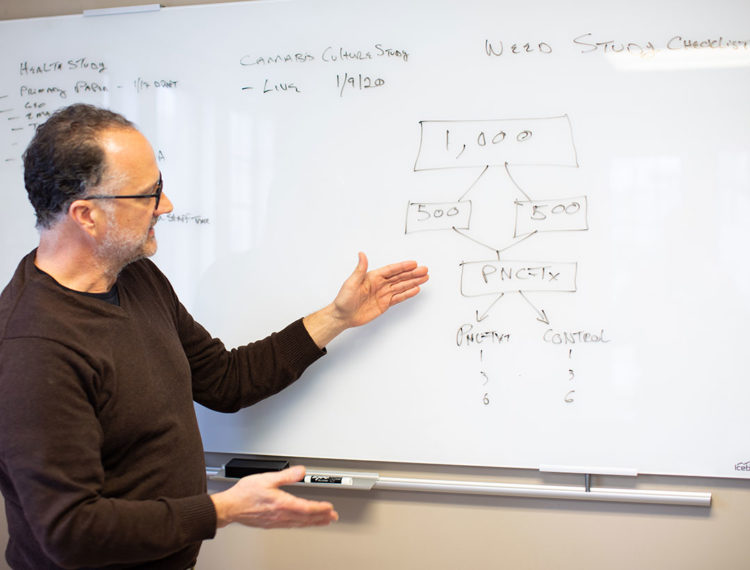 Motivating Young Adults Struggling with Substance Use
Motivating Young Adults Struggling with Substance Use
A University of Tennessee researcher has made it his mission to use technology and evidence-based treatment to help young people struggling with cannabis use disorder (CUD) decrease or overcome substance use.
Dr. Michael Mason is the Betsey R. Bush Endowed Professor of Children and Families at Risk in the UT College of Social Work’s Center for Behavioral Health Research (CBHR). He studies adolescent and young adult substance use treatment and prevention, along with social and environmental influences on substance use and mental health. His research seeks to understand and test the idea that substance use is a developmentally contingent social practice constituted within the routine social environment of peoples’ lives.

A few years ago, Michael started developing counseling interventions based on his findings about the importance of peer relations and place, drawing from motivational interviewing and therapy approaches. Initially, he created and tested Peer Network Counseling (PNC) – a 20-minute substance use intervention – which he then transformed into a text message-based version, PNC-txt. Described by the National Institute on Drug Abuse (NIDA) as a “digital health therapeutic,” PNC-txt engages participants in 16 days of automated, personalized text interactions over the course of 4 weeks.
“It walks an individual through the process of reflecting on their own use and determining their goals and motivations for change. We try to facilitate that change and activate their motivation based on the science behind motivational behavior change,” says Michael. “It allows the person to make the change that meets their personal goals. That’s an important philosophical approach.”

Last year, Michael and Douglas Coatsworth, professor of human development and family studies at Colorado State University, received a $3.2 million grant from NIDA to test PNC-txt for young adults ages 18 to 25 with CUD. In this study, Michael and Douglas will enroll 1,000 young adults — 500 in Tennessee and 500 in Colorado — making it the largest clinical trial for treating CUD to date. Recruitment was slated to begin in April 2020, but due to COVID-19, the team pivoted their approach in the new virtual environment.
“A lot of things had to be retooled because of COVID. The users were going to come into our lab to do their enrollment and screening,” he says. “We had to change all that and make everything virtual. But we are ready to launch and excited to start.”
 Earlier this year, Michael co-founded the startup Behavioral Labs based on PNC-txt. He serves as the startup’s Chief Research Officer and enjoys the continuum where he can keep doing the job he loves, but also have his foot in the commercial world. He is thankful for UTRF’s support throughout the entire process of licensing the technology.
Earlier this year, Michael co-founded the startup Behavioral Labs based on PNC-txt. He serves as the startup’s Chief Research Officer and enjoys the continuum where he can keep doing the job he loves, but also have his foot in the commercial world. He is thankful for UTRF’s support throughout the entire process of licensing the technology.
“Dr. Mason is an accomplished researcher who is using his expertise to help a vulnerable population,” says UTRF Technology Manager Kusum Rathore. “UTRF is proud to partner with such individuals, who work rigorously to ensure their technology is backed by thorough research and proven results.”
In addition to other projects, Michael is seeking Institutional Review Board approval for a proposal accepted by NIDA. Once approved, he will conduct a two-year longitudinal study of COVID-19 and its effects on young adults who are at heightened risk for both the virus and substance use.
“This is an example of being able to apply what we have been doing in the past and help people understand this disease in another way,” explains Michael. “We’re doing work that is ultimately useful and helpful to others.”